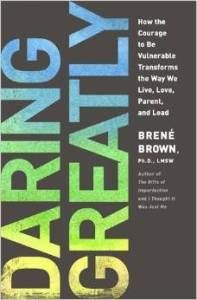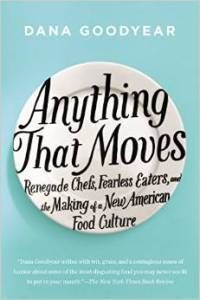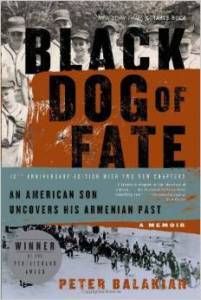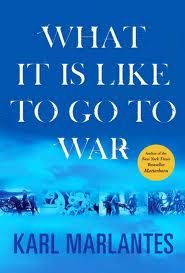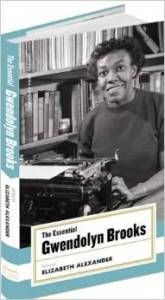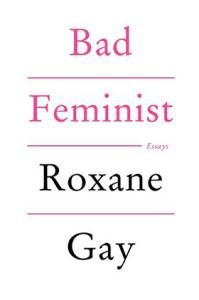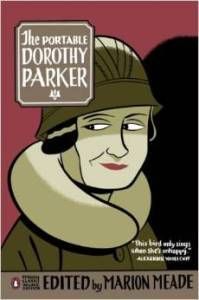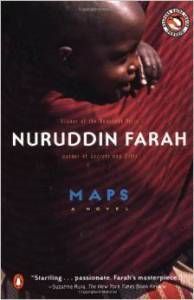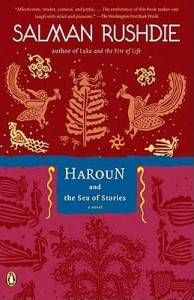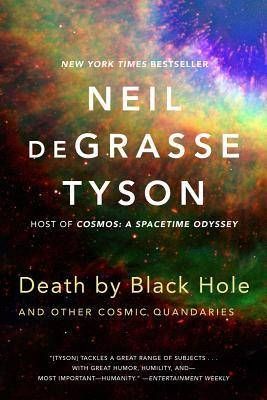
A Humble Presentation Of Our Picks For Mark Zuckerberg’s Book Club
Following through on a tradition of giving himself a new challenge for each new year, Mark Zuckerberg announced that he would start a book club through Facebook, reading one new book every two weeks, with an emphasis (according to Forbes) on “learning about different cultures, beliefs and histories.” His first selection, The End of Power by Moisés Naím, focuses on the rise of individual power, assisted by (appropriately enough) social media platforms.
It’s a time for book challenges, resolutions, and growing ourselves as readers, and Mark Zuckerberg is hopping on that train with A Year of Books. So a few of our contributors got together to make some recommendations for Zuckerberg’s book club, books we think would fit in with his goal to delve into issues more deeply and to consider other cultures, beliefs, and histories.
Daring Greatly by Brené Brown: If Zuck’s first book selection is any indication, we’re going to see a lot of business/motivation stuff from this club. Rather than the usual “get a good education, work hard, make good connections” advice, which relies heavily on the reader having access to opportunities and the means to take advantage of them, this book is about personal vulnerability and risk-taking and their ability to change our relationships and working lives. And the great thing is that anyone can practice the interpersonal skills Brown explores, in any environment. It’s a more inclusive approach to self-improvement, and I think that’s rad.
Anything That Moves: Renegade Chefs, Fearless Eaters, and the Making of a New American Food Culture by Dana Goodyear: I’m in the middle of this one now, and I love to question what it is that I eat and why I eat it. How awesome would it be to have Zuckerburg’s club do the same? Goodyear does a nice job here of discussing what it means to have limitations on food, both based on resources and mental willingness. And there’s nothing quite like being self aware of the changes of food and dining in the states (Yes, there’s a raw milk movement that isn’t cool by FDA standards) and how comfortable you are with your own barriers.
Black Dog of Fate by Peter Balakian: This year marks the 100th anniversary of the Armenian Genocide, an event that is often overlooked to this day. This atrocity is still not officially recognized by the U.S. government and many other nations around the world. I once had to explain it to a history teacher in high school because it wasn’t covered in the textbook in the chapter covering World War I. Mark Zuckerberg expressed that his book club will have an emphasis on “different cultures, beliefs, histories and technologies,” and this book encompasses three of those categories. Another recommendation is The Forty Days of Musa Dagh, however, that book is likely too long for the book club timeline.
What It Is Like to Go To War by Karl Marlantes. Marlantes wrote one of the most harrowing novels I’ve ever read in Matterhorn, a story of a Marine company in Vietnam. And while that may be the better of his two books, What It Is Like to Go to War is the more important. Marlantes wants us to think about what war is and the effects it has on the human psyche. He looks at the thrills, the crimes, the rituals, and the secrets that go along with the experience of a warrior and considers how war and the treatment of soldiers has changed over time. For those of us who haven’t been in battle, Marlantes presents a crucial point of view about what it is that draws people to military service and what it means to them. He considers not only Vietnam but the wars in Iraq and Afghanistan and how the United States has changed culturally. After reading it, you can’t think about war in the same way again, and with the prospect of war constantly on the horizon, it’s a necessary book to read as a citizen of the world.
The Essential Gwendolyn Brooks, edited by Elizabeth Alexander. A book of poetry (let alone a book of poems that mostly come from the middle of the last century) might not seem like the likeliest choice for this book club. And it’s probably not. But it should be. Relatively accessible and exquisitely beautiful, Brooks’s poems offer a sharp-eyed and generous glimpse at African American lives and communities, especially in northern cities after the Great Migration. You only have to glance at recent headlines to see how a devastating poem about Emmett Till (“That boy must have been surprised! For / These were grown-ups. Grown-ups were supposed to be wise.”) or one about the power of riots (“They were black and loud. / And not detainable. And not discreet.”) might spark useful, fascinating discussion today. And beyond (or perhaps alongside, perhaps through, perhaps tangled up with) their relevance, Brooks’s poems also have beauty and grace and rhythm (“Let it be alleys. Let it be a hall / Whose janitor javelins epithet and thought”) that reward reading, rereading, and discussion. It may not be a likely choice, but I can still dream.
Bad Feminist by Roxane Gay: I can think of very few books that would open up the same types of intense discussions about feminism, power, race relations, and pop culture than Bad Feminist. And I believe Gay is one of the only authors who could handle that level of public discourse, based on her current social media presence and how her book remains approachable even when talking about difficult topics.
The Portable Dorothy Parker by Dorothy Parker: Sometimes we need to be reminded that “classic” does not automatically mean “old, white guys.” Parker’s wit and wisdom is on full display in this compendium of her writing, and at her best, Parker’s writing has an uncanny way of being relevant to modern society and to modern people. Holding a unique space in 20th century letters as a poet, short fiction writer, screenwriter, critic and satirist, Dorothy Parker has the ability to elucidate and entertain all in one breathe.
Maps by Nuruddin Farah. As one of Zuckerberg’s ruminations on books notes, “Books allow you to fully explore a topic and immerse yourself in a deeper way than most media today.” I champion fiction to fulfill this requirement, and I could not have been more immersed in Farah’s Maps, the story of Askar, a boy who comes into manhood amidst the confusion and turmoil of modern day Africa. His father died in the Ethiopian civil war; his mother died bringing him to life; and Askar, a newborn found (in Somalia) next to his mother’s dead body, is taken in and loved by a woman who is herself an outcast in this small village, due to her Ethiopian heritage. Askar struggles with understanding the ways of his world – war, the male-dominated society, colonial education, family ties and ethnic prejudices. Come for the story, fall in love with the beautiful, beautiful writing – interspersing dreams with memories with folktales with regular old narrative – that had me mesmerized, and continues to haunt my reading dreams. And it’s the first novel in Nuruddin Farah’s Blood in the Sun trilogy, which means readers can immerse themselves even further in books two, Gifts, and three, Secrets.
Haroun and the Sea of Stories by Salman Rushdie. When the fatwa was issued against Salman Rushdie following the publication of his novel The Satanic Verses, Rushdie was forced into hiding, and on the other side of that dark time emerged the novel Haroun and the Sea of Stories. Haroun is a young boy whose father has always been a wildly entertaining storyteller, nicknamed the Shah of Blah. But suddenly, his mother leaves, and his father loses the ability to tell stories. In the fantastical story that follows, Haroun must go on a quest to stop the Sea of Stories from being drained, thereby silencing the storytellers forever. While the book reads as a funny heroic quest novel, it is, at its heart, a defense of storytelling. This book is the powerful, curative medicine of Story, a tradition which has always been, and a tradition which must continue, in all its power and diversity. This book is also the sugar to take that medicine down with, as entertaining as it is illuminating.
Death By Black Hole: And Other Cosmic Quandaries by Neil Degrasse Tyson. This collection of scientific essays aims to make astrophysics accessible, and if there’s one thing we all need in this age of rampant science-denying, it’s a little accessible scientific perspective. Neil Degrasse Tyson delivers with rants about scientific accuracy in movies, easy-to-grok explanations of relativity and quantum mechanics, and a compelling outline of just what would happen to your body if you were sucked into a black hole. Zuckerberg wants to focus on other cultures, beliefs, and histories, and I think a good starting point would be a look at the one thing all cultures have in common: our tiny space in an infinite (as far as we know, anyway) universe.
____________________
Follow us on Tumblr for for book recs, literary talk, and the occasional pic of a puppy reading.



